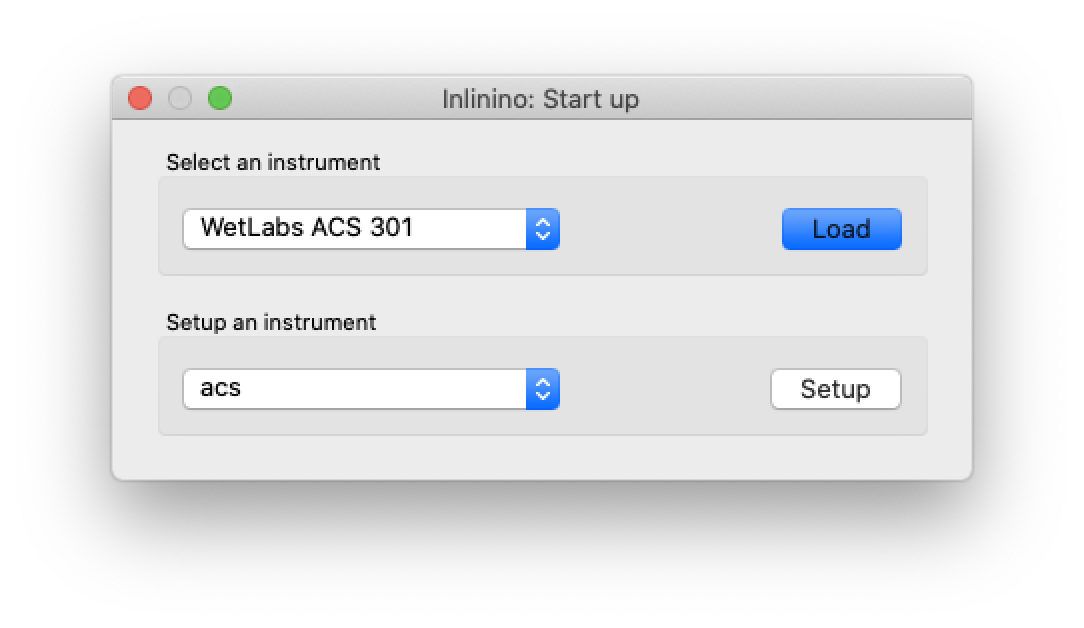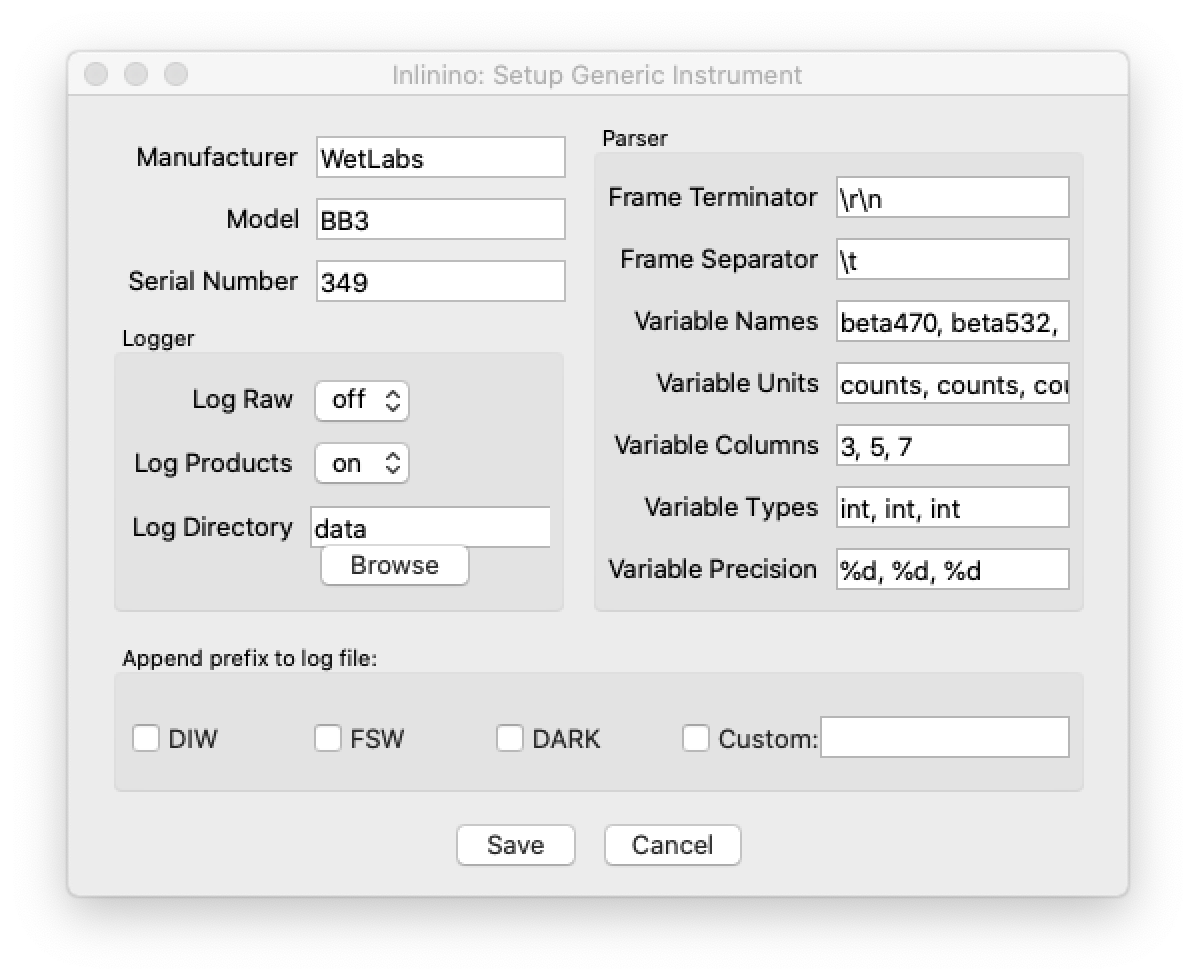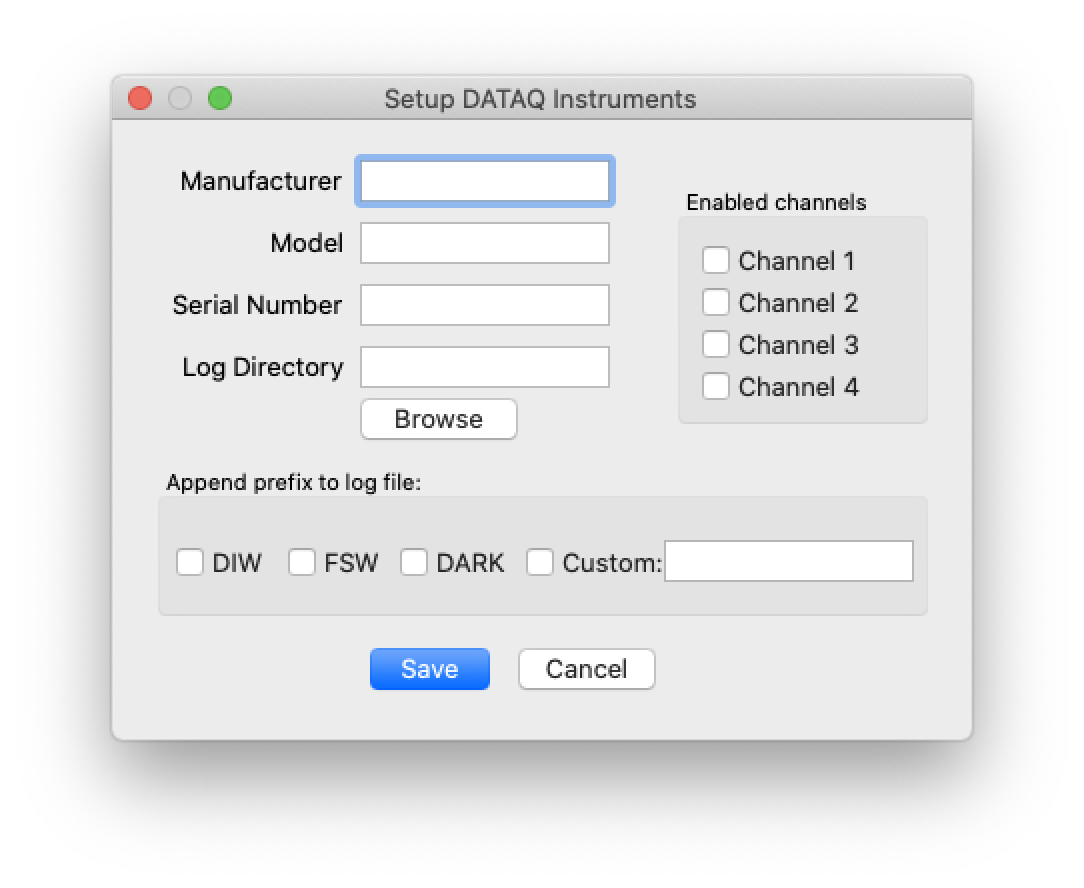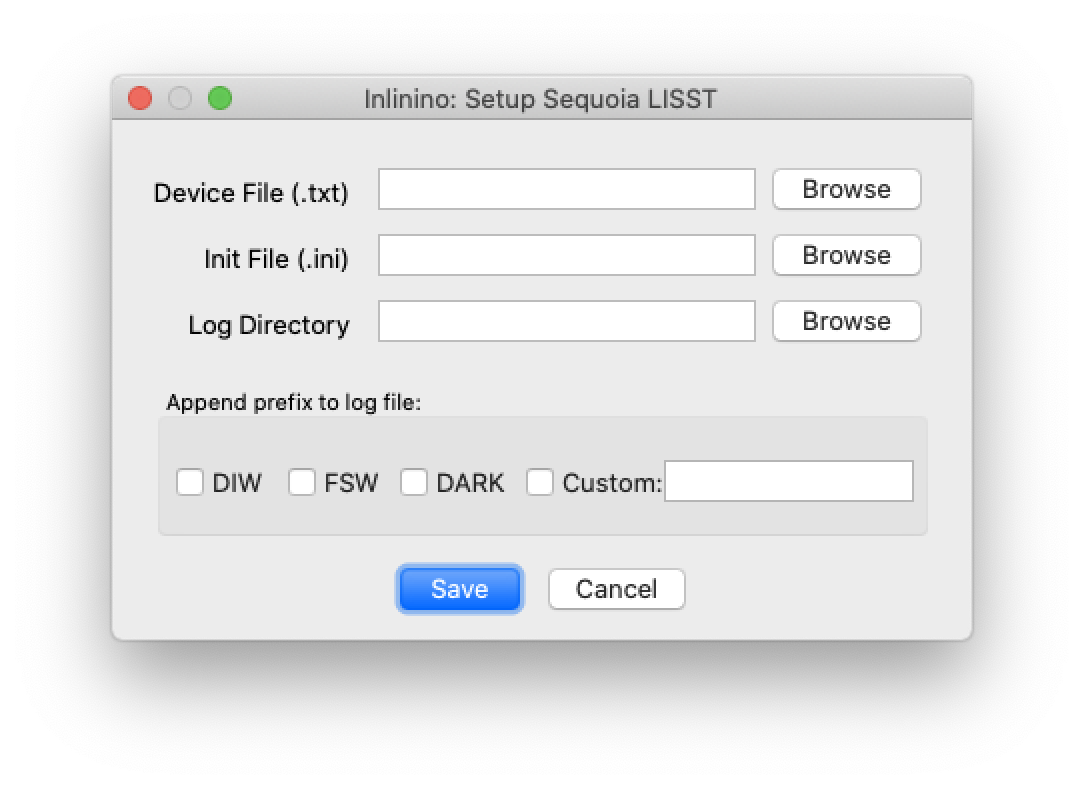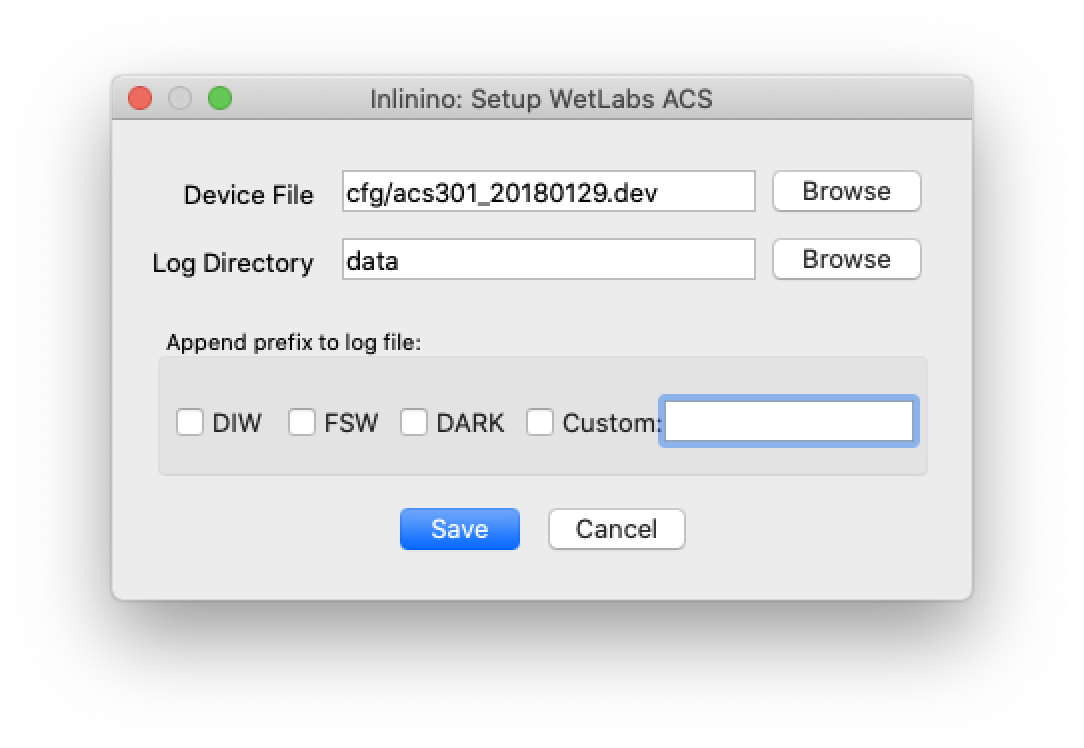Quick Start¶
Inlinino’s executable for Windows, macOS, and Ubuntu can be downloaded here. Advance users or developers can run Inlinino directly from the source code available on the (GitHub repository).
Main Window¶
Once an instrument selected or setup through the startup window, the main Inlinino window will be loaded. The model and serial number of instrument will be displayed at the top of the sidebar. The color of the instrument’s model and serial number indicates the current status of the system:
red: the instrument is not connected
orange: the instrument is connected but not logging
green: the instrument is connected and logging data
To log data follow the steps describe in the following section (Log Data).
To log data from multiple instruments simultaneously, start multiple instances of Inlinino. To do so, simply click on the Inlinino executable icon (.app on macOS or .exe on Windows) as many times as instruments to log. On the startup window select the appropriate instrument each time.
The last 120 values of selected channels are displayed in the plotting section of the main window (Figure 7) once the instrument is connected. On generic and analog instruments all channels are selected. On the Sea-Bird Scientific ACS and Sequoia LISST the user can select the channels of interest from the Select Channel(s) Group-Box menu at the bottom of the sidebar. By default, the latest channels selected by the users are plotted.
The Packets Group-Box of the sidebar displays in real-time the number of packets received, logged, and corrupted. When an instrument is turned on a few corrupted packets could be received, they are generally due to the instruments initialization message. If the number of corrupted packets keep increasing, a problem with the data format, the instrument settings, or the connections is occurring. Note that if the raw data is logged, the corrupted packets are logged but not timestamped. The raw data logging option is available in the setup menu of generic instruments. For other instrument types it’s activated by defaults.
Instruments with many channels like the Sea-Bird Scientific AC-S and Sequoia LISST have an auxiliary window (Figure 8) which shows the latest value received of each channel. Instruments communicating auxiliary data (e.g. instrument temperature) have it displayed in the Auxiliary Data Group-Box of the sidebar.
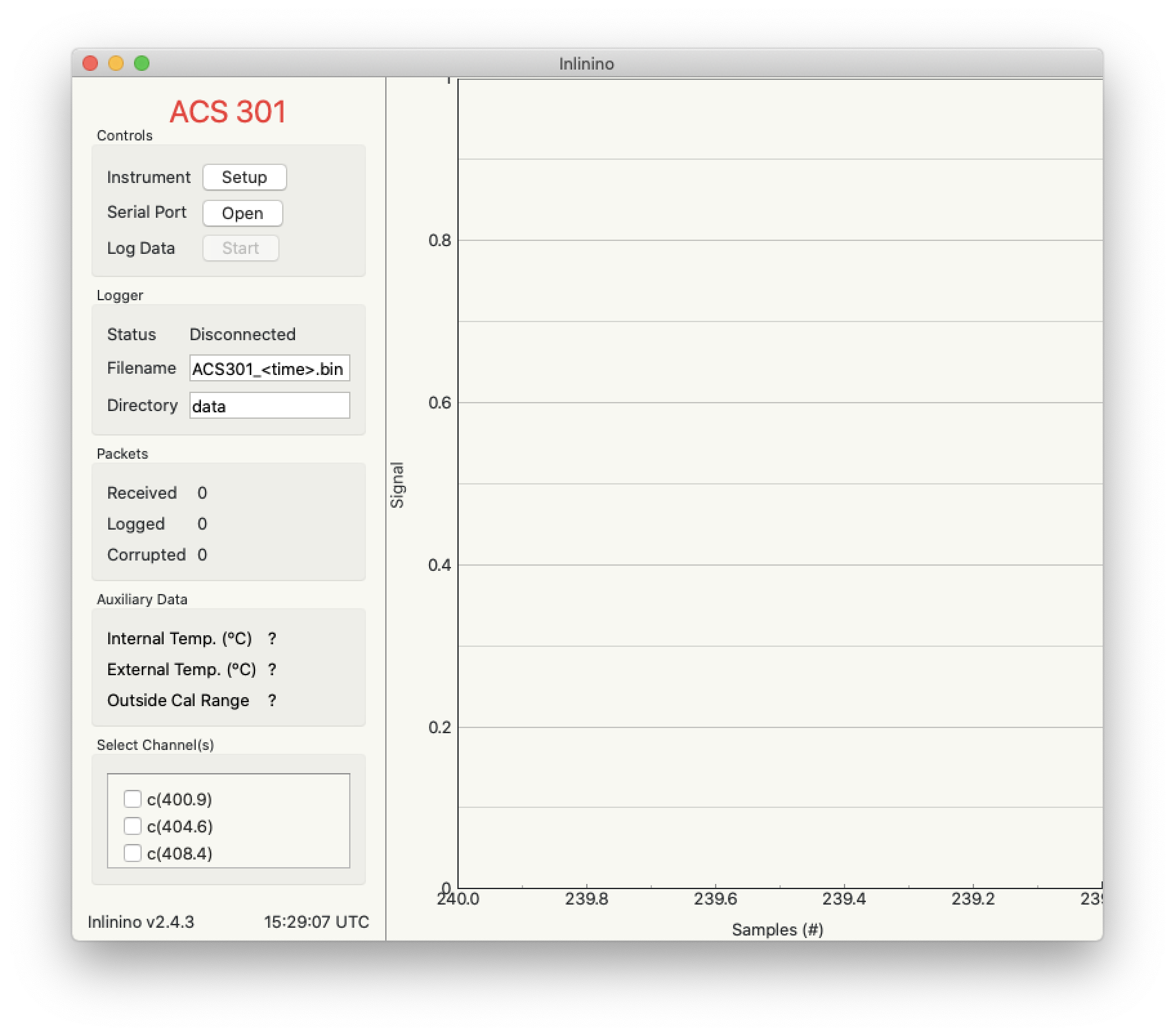
Screenshot 6. Inlinino Main Window¶
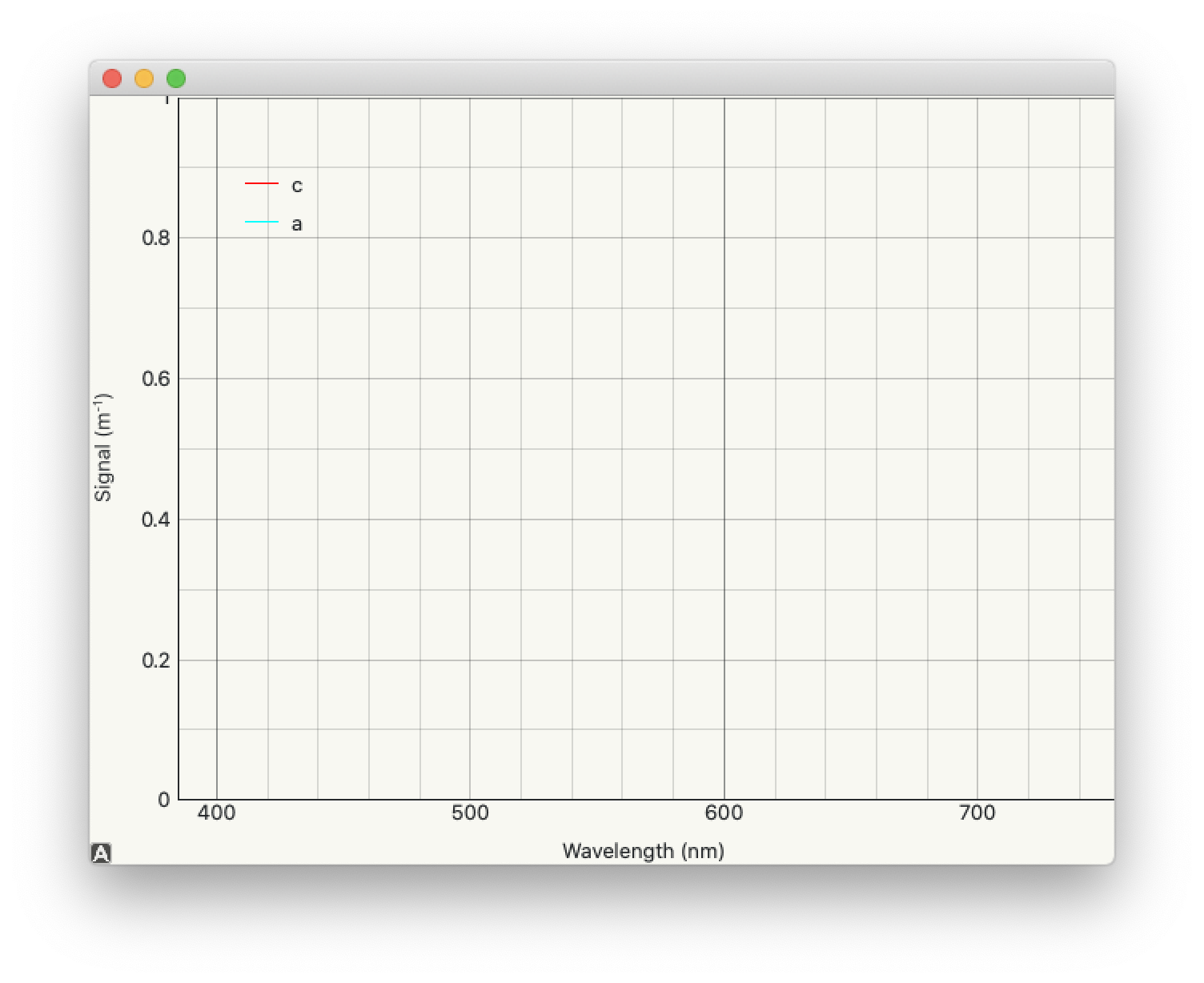
Screenshot 7. Inlinino Auxiliary window specific to instruments with many channels (e.g. AC-S, LISST)¶
Log data¶
Verify the configuration of the instrument by clicking on the setup button. Detailled instruction are provided in the, c.f. next section.
Connect the instrument:
Click on
Openbutton under theControlssection at the top of the sidebar.A pop-up window will prompt the serial port to which the instrument should be connected to.
Once connected the instrument name at the top of the sidebar will change to an orange color, and data can be visualize on the figure section of the window.
Warning
If no data can be visualized or the data makes no sense, the instrument is either incorrectly configured, their is a problem wih the connection, the instrument has an issue, or the instrument is not sampling properly (e.g. bubbles in the sample).
Log data:
Click on
Startbutton under theControlssection at the top of the sidebar.The name of the instrument will change to a green color. The filename under the
Loggersection will be updated to reflect the current file in which the data is logged. The filename is formatted as follow <prefix><instrument_model><instrument_serial_number>_<YYYYMMDD>_<hhmmss>. Prefix can be updated from the instrument setup (c.f. Edit Instrument Configuration). is Typically, a new file is created hourly, however, this can be adjusted through the configuration file.
Edit instrument configuration¶
Before logging data, it’s important to check the configuration of the instrument, that the variables recorded are correct or that the calibration files are up to date.
To edit the configuration of an instrument, Inlinino must be started with the instrument loaded. Click the Setup button under the Controls Group-Box at the top of the sidebar. The setup window will pop-up. To update settings follow instructions specific to each instrument’s type (c.f. Table 1).
Append prefix to log file Group-BoxData filenames follow the syntax
<instrument_model><instrument_serial_number>_YYYYMMDD_HHMMSS.csv. For example a file for a Sea-Bird Scientific ACS serial number 301 created July 9, 2016 at 16:01:00 UTC would be named:ACS301_20160709_160100.csv.One might want to append a prefix to a data file name logged with Inlinino, in the event of instrument calibration or some experiments. To consistently append a prefix to the name of a file logged with Inlinino, select the prefix desired at the bottom of the setup window (Screenshot 8).

Screenshot 8. Append prefix to log file name.¶
Warning
The
Append prefix to log filesettings are only applied to the current Inlinino session and are reset when Inlinino is restarted.
